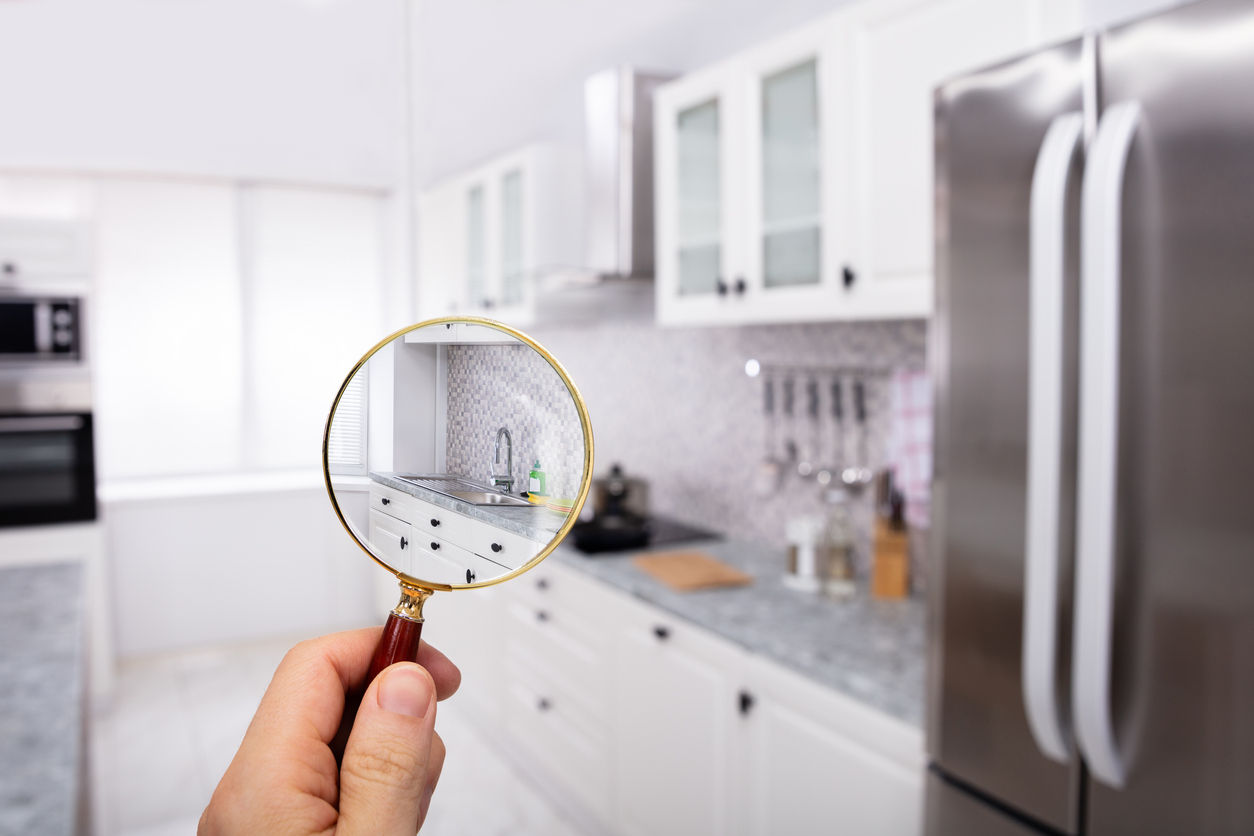- 401(k) Options for Buying Your First Home
- Advantages and Disadvantages of Using a 401(k)
- How to Use Your 401(k) for a First Home
- Step One: Consult Your Plan Administrator
- Step Two: Determine the Amount Needed
- Step Three: Evaluate the Financial Viability of Using Your 401(k) for a Down Payment
- Step Four: Choose Between a Loan and a Withdrawal
- Step Five: Apply for the Loan or Withdrawal
- Step Six: Understand the Income Tax Implications
- Step Seven: Monitor your Retirement Savings
- Alternatives to Using Your 401(k)
- Is Using Your 401(k) the Right Move?
Can You Use Your 401k to Buy Your First Home?
When buying real estate, the biggest hurdle is often saving enough money for a down payment. Many buyers start looking into alternative ways to fund a deposit. Some options include getting a gift, selling another asset, or grants for first-time homebuyers. However, many potential buyers start eyeing off an account that is seemingly forbidden—their 401K. So, can you use a 401k to buy a house? Potentially.
A 401(k) is a retirement savings plan offered by many employers that has tax advantages for the saver. Employees can contribute a portion of their salary to their 401(k) on a pre-tax basis, meaning that their contributions are deducted from their gross income for the taxable year.
Because many employers offer to match contributions to a certain percentage, 401(k) funds can start adding up quickly. 401(k) can be invested in various options, such as stocks, bonds, mutual funds, and other investment vehicles.
The downside of a 401(k) plan is that because these funds are meant to be used during retirement, withdrawals before age 59½ typically incur a 10% early withdrawal penalty in addition to regular income taxes. However, some exemptions exist, including if you are buying a house.
Let’s discuss how you can use your 401(k) funds to help buy a house. We will break down who can use their retirement savings to purchase real estate, the benefits, and the consequences. Learn about your options so you can decide if this is the right path to help you become a homeowner.
401(k) Options for Buying Your First Home
A 401(k) retirement plan must follow specific rules in the U.S. Internal Revenue Service Code. There are two ways the code enables account holders to “withdraw” funds early: take out a 401(k) loan or a withdrawal.
401(k) Loan
Borrowing from your 401(k) or taking out a loan is usually the best option for most homebuyers. When you take out a loan from your retirement savings, you don’t incur a 10% early withdrawal fee. Not only does a loan save you the penalty fee, but it allows the funds to be repaid into the retirement savings account. By paying back the funds, account holders don’t entirely miss out on the years of compounding interest and future retirement benefits.
While you can get a loan from your 401(k) to help you buy a house, there are limitations on the amount you can withdraw. You can borrow up to 50% of your vested account balance, up to a maximum of $50,000. A vested account balance refers to the portion of your retirement plan (such as a 401(k)) that you fully own and can take with you if you leave your job.
Any contributions you make to your retirement account are 100% vested, but you should check your vesting schedule to know how much of your employer’s matched contributions are vested. If you leave your job before you are fully vested, you forfeit the non-vested portion of your employer’s contributions.
A 401(k) loan must generally be repaid within five years. The repayment term can be extended if the loan is used to purchase a primary residence. Repayments are typically made through payroll deductions on an after-tax basis, meaning that they do not get the same income tax exemption as a contribution.
That means these funds are not eligible for a tax break, and you will need to pay taxes. The interest rate on a 401(k) loan is usually set by the plan and is typically the prime rate plus 1-2%. The interest paid goes back into your 401(k) account.
Finally, you need to consider that because your 401(k) account is attached to your employer, the loan must be repaid in full if you change jobs. If you can’t repay the loan at this time, the amount will be considered a withdrawal and you’ll have to pay the early withdrawal penalty.
401(k) Withdrawals or Hardship Withdrawals
While a 401(k) loan is usually the best option when you need funds to buy a house, not all plans allow you to take out a loan. In these situations, you can withdraw from your 401(k) account. Some plans allow for hardship withdrawals for major expenses, including buying a principal residence. Unlike loans, withdrawals do not have to be repaid. But keep in mind that any withdrawal under the agent of 59½ will incur a 10% early withdrawal penalty.
One of the benefits when you withdraw money is that there’s no limitation on how much you can take out. If you need $100,000 for a down payment on a home, you can take this money out of your 401(k) as long as the funds are available. However, it’s crucial to remember and calculate your tax penalties. You will have to pay income taxes and a penalty fee for any funds withdrawn.
Before you withdraw money from your 401(k), talking to a financial advisor can be helpful. They will advise you on your tax liabilities and the long-term consequences of your withdrawal. While a home purchase can be a smart financial investment, you want to ensure you are still appropriately prepared for retirement. Using 401(k) funds can significantly impact your retirement savings growth. The funds you withdraw or borrow will not be invested, potentially reducing your retirement nest egg.
Advantages and Disadvantages of Using a 401(k)
Using your 401(k) to buy a house might be your ticket to homeownership. For many, the initial savings of a deposit can keep them out of the housing market entirely, but their 401(k) funds can help them bridge the gap.
While tapping into these funds can provide immediate financial relief, it’s important to weigh the benefits and drawbacks carefully.
Pros of Using Your 401(k) to Buy a House
Borrowing from your 401(k) allows you to access funds to buy a house. For many, it’s a better option than years of savings or asking a family member for a loan.
Some advantages of using your 401(k) to fund your home purchase are:
- Earlier entry into the housing market allows you to invest and benefit from potential appreciation over time. In some real estate markets, this can represent a better long-term investment than retirement account investments.
- Potential to qualify for first-time homebuyer penalty exemptions.
- A lower interest rate than traditional personal loans or credit cards.
- The interest paid goes back into your 401(k) account, meaning that instead of paying interest to a bank or lender, you’re effectively paying interest to yourself.
- 401(k) loans are not reported to credit agencies, so taking a loan from your retirement savings will not affect your credit score.
- A 401(k) loan can be a great way to avoid paying private mortgage insurance.
Cons of Using Your 401(k) to Buy a House
While borrowing from your 401(k) can provide immediate funds for a home purchase, it comes with significant drawbacks that can impact your financial future. Do not withdraw funds from your 401(k) or take out a loan until you understand the full consequences, such as:
- When withdrawing money before age 59½ and you do not qualify for an exemption, you will incur a 10% early withdrawal penalty in addition to regular income taxes. This can significantly reduce the amount of money you have available for your home purchase.
- Taking funds out of your 401(k) will lower your long-term savings, potentially causing significant negative impacts down the road.
- If you change jobs, you will have to repay your 401(k) loan within 60 days, or it will be considered a withdrawal (with all the accompanying financial consequences). This can cause borrowers to forgo beneficial employment opportunities.
- If your employer matches your 401(k) contributions, taking a loan or early withdrawals might reduce your contributions, thereby reducing the employer match.
- Loan repayments are made with after-tax dollars, and then withdrawals in retirement are taxed again, which can be viewed as double taxation on the repaid loan amounts.
- Repaying a 401(k) loan can create additional financial strain, especially if unexpected expenses arise.
Borrowing from your 401(k) can provide a quick solution to funding your home purchase, but it’s crucial to consider these downsides. Make sure you understand the terms of any loan or withdrawal you commit to and ensure it aligns with your long-term financial goals, not just your dreams of homeownership.
How to Use Your 401(k) for a First Home
Using your 401(k) to buy your first home can be a viable option if approached carefully. Unlike getting a mortgage, you don’t need to talk to a traditional lender or mortgage broker. Instead, you should speak with your financial planner or plan administrator to formulate a plan.
Step One: Consult Your Plan Administrator
Each 401(k) plan has its own set of rules and restrictions. Start by understanding your specific plan’s rules regarding real estate purchases. There may be exemptions for withdrawals or a loan. Your plan administrator can provide detailed information on loan provisions, hardship withdrawals, and any associated fees or penalties.
Step Two: Determine the Amount Needed
Before committing to taking any funds from your retirement account, you need to know how much you need. This step might require working with a mortgage broker to get pre-approved and have your budget assessed. Calculate the exact amount you need for your home purchase, including the down payment, closing costs, and any other related expenses. This will help you decide how much to withdraw or borrow from your 401(k).
Step Three: Evaluate the Financial Viability of Using Your 401(k) for a Down Payment
Use financial planning tools or consult with a financial advisor to assess how using your 401(k) will affect your retirement and overall financial health. Consider the impact on your long-term savings, potential penalties, and the effect on your investment growth. A financial advisor can help you weigh the pros and cons and determine if this is the best option for your situation.
Step Four: Choose Between a Loan and a Withdrawal
Decide whether to take a loan or a hardship withdrawal from your 401(k). A loan must be repaid with interest but won’t incur early withdrawal penalties or taxes if repaid on time. A hardship withdrawal doesn’t need to be repaid, but it will be subject to taxes and potential penalties, which can significantly reduce the amount you receive.
Your financial planner may be able to give you insight into these two options. Typically, if the account holder can afford the repayments and isn’t planning on changing jobs, getting a loan from your 401(k) over a withdrawal is recommended.
Step Five: Apply for the Loan or Withdrawal
Once you’ve decided on the amount and type of 401(k) usage, apply through your plan administrator. This process typically involves completing specific forms and providing documentation for the home purchase.
If you opt for a loan, create a repayment plan that fits within your budget. Remember that 401(k) loans usually must be repaid within five years, though this term can be extended for a primary residence purchase. Failure to repay the loan can result in it being treated as a taxable distribution.
Step Six: Understand the Income Tax Implications
Be aware of the tax implications associated with withdrawing or borrowing from your 401(k). Talk to a financial planner or tax professional so you know how much you may have to pay and how to minimize your obligations.
Step Seven: Monitor your Retirement Savings
While retirement may seem far away, early planning and saving are essential. Track how borrowing or withdrawing from your 401(k) affects your retirement savings. Adjust your retirement plan contributions if necessary to ensure you’re still on track to meet your long-term financial goals.
Alternatives to Using Your 401(k)
Tapping into your 401(k) can provide quick access to funds for a home purchase. But before you turn towards your retirement account, look into alternatives that might be more advantageous in the long run.
FHA Loans
FHA loans are a popular option for first-time homebuyers because they require lower down payments and have more lenient credit requirements compared to conventional loans. With an FHA loan, you may be able to put down as little as 3.5% of the purchase price, making homeownership more accessible.
Local and State First-Time Homebuyer Assistance Programs
Most state and local governments offer down payment assistance programs for first-time homebuyers. A down payment assistance program (DPA) is designed to help homebuyers, particularly first-time buyers, cover the costs associated with the down payment and, in some cases, closing costs for purchasing a home.
Types of DPAs include:
- Forgivable loans like the Good Neighbor Next Door Program.
- Low-interest loans like USDA loans, HomeReady, or Home Possible.
- Deferred-payment loans.
Lender Down Payment Assistance Programs
Lender down payment assistance programs are initiatives offered by mortgage lenders to help homebuyers cover the costs associated with their down payment and sometimes closing costs.
The assistance can come in various forms, such as grants, forgivable loans, or low-interest loans, and is typically tied to specific mortgage products offered by the lender.
Some examples of lender DPAs include:
- Bank of America Down Payment Grant Program: Offers a grant of up to $10,000 to eligible homebuyers that can be used towards their down payment.
- Chase Homebuyer Grant: Offers up to $7,500 to help cover down payment and closing costs for eligible homebuyers.
- Guild Mortgage 3-2-1 Home Program: Provides a $2,000 Home Depot gift card for home improvements, a 3% grant, and $1,000-2,500 towards closing costs.
Is Using Your 401(k) the Right Move?
Using your 401(k) to buy your first home can be a viable option, but it comes with significant risks and considerations. It’s crucial to understand the implications of your retirement savings and to explore all available options before making a decision.
Before deciding to use your 401(k) for a home purchase, get a clear understanding of your financial needs and the best options available. Connect with a mortgage broker through FastExpert to get a detailed assessment of how much money you need for your deposit.
An experienced broker can guide you through the best financing options tailored to your needs, ensuring a smooth and financially sound homebuying process.




